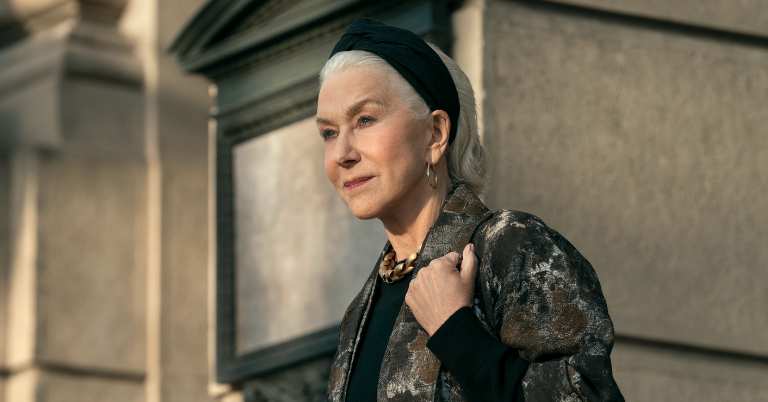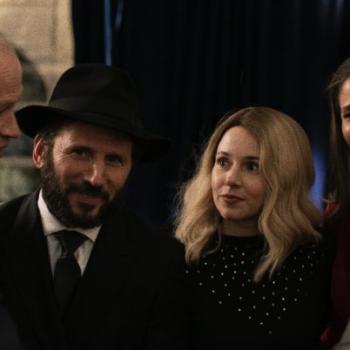Mark Forster’s “White Bird,” releasing Friday from Kingdom Story Company and Lionsgate, is a visually rich and emotionally poignant film that serves as a companion piece to the beloved 2017 movie “Wonder.” Like its predecessor, “White Bird” emphasizes the transformative power of kindness, but this time, it sets its narrative against the far more harrowing backdrop of Nazi-occupied France during World War II. While Wonder asked audiences to embrace kindness in everyday life, “White Bird” urges viewers to extend their compassion even further—to confront hatred and stand up for what’s right, even when it might mean risking everything.

The film is based on R.J. Palacio’s graphic novel of the same name, expanding the universe by focusing on Julian Albans, a character initially portrayed as the school bully in “Wonder.” Julian, who was left deeply affected by his interactions with Auggie, has since become more apathetic and disconnected. But everything changes when his Grandmère (Helen Mirren), who resides in Paris, visits him and begins to share her heart-wrenching story of surviving the Holocaust as a Jewish girl. It is through her past, and the tale of her unlikely friendship with a young boy named Julien, that Julian finds the opportunity to understand the profound power of compassion.
Helen Mirren is wonderful in her role as Grandmère, carrying the weight of the film with grace, authority, and vulnerability. Her voice, filled with the gravity of someone who has endured unimaginable hardship, sets the tone for the movie’s central narrative. As the movie delves into Grandmère’s flashback, we are introduced to a younger version of her, Sara (played by Ariella Glaser), who experiences both the cruelty and beauty that humanity has to offer during the Holocaust.
When Sara is forced to go into hiding to avoid Jewish persecution, it is Julien (Orlando Schwerdt), a disabled boy from her school, who bravely offers her shelter. Sara initially mistreats Julien due to his physical limitations, but when her life is on the line, it is Julien who risks everything to help her. The relationship between Sara and Julien becomes the heart of the film, demonstrating that love and compassion can flourish even in the darkest of times. Their story is a testament to the kind of courage that can emerge when people see beyond their differences and come together to fight against oppression.
Orlando Schwerdt as Julien is a inspired choice. The young man brings an innocence and sweetness to his role, embodying the purity of a boy whose kindness surpasses even the grave dangers he faces. His performance beautifully contrasts with the horrors of the time, reminding audiences of the redemptive power of small acts of bravery. Schwerdt’s portrayal of Julien not only highlights the deep compassion he has for Sara, but also suggests that his actions stem from a place of moral clarity—an understanding that sometimes, doing the right thing requires sacrificing one’s own safety.
Forster’s direction of the film is nuanced and elegant, juxtaposing the idyllic countryside of France with the nightmarish realities of Nazi occupation. The cinematography offers a dreamlike quality to the moments when Julien and Sara retreat into their imaginary world—an escape they create to survive the horrors that surround them. Yet, Forster never allows the beauty of these scenes to overshadow the brutal truths of the Holocaust. The film’s balanced tone ensures that the audience remains acutely aware of the stakes involved, making the acts of kindness and courage all the more impactful.
“White Bird” is not only a historical drama but also a deeply moral film. The themes of love, sacrifice, and the importance of standing up for others resonate beyond its historical setting. In one of the film’s most moving scenes, Sara asks her father why people hate Jews. His response—“What I believe is that all people have a light inside them and that light lets them see into other people’s hearts. Some people have lost it. They have darkness inside them and that’s all they see in others”—sums up the film’s central message. Hatred comes from a place of darkness, but as long as people hold on to their light, as long as they remain compassionate and brave, they can overcome even the most insurmountable obstacles.
This message is particularly relevant in today’s world, where we continue to see the rise of antisemitism and various forms of bigotry. “White Bird” serves as a reminder of the importance of standing up against hatred and injustice. In a time when divisions seem to be widening, the film reminds us of the enduring strength of kindness and the necessity of empathy.
By the film’s end, Julian’s transformation is complete. He is no longer the apathetic boy, but someone who understands that true heroism often lies in small, selfless acts. Grandmère’s story changes him forever, and in turn, Forster’s film has the power to change its viewers as well.
With stellar performances from its cast, particularly Helen Mirren and Orlando Schwerdt, and a profound message about the power of love and sacrifice, “White Bird” is a must-see film. It reminds us that in the face of hatred, it is compassion that can—and will—save lives.













